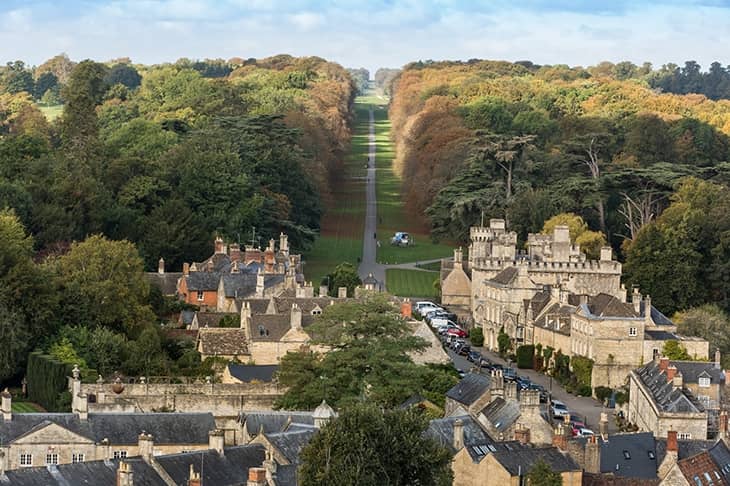‘Half! Half! Half!’ exclaimed my husband like a performing sea lion. Not that sea lions perform any more, but you get the simile. He was emphasising the pronunciation of the first syllable of Hertford, which, as he rightly said, has no T sound.
He had worked himself up because on Twitter there was a froth about the way to pronounce some place-names: Hawarden as Harden, Wemyss as Weems, Marylebone as Marrabun and Cirencester as Sissister.
I agreed about Marylebone, though in 1909 the philologist Otto Jespersen noted that ‘now the l is often sounded’. In 1981, Klaus Forster in his Pronouncing Dictionary of English Place-Names gave 11 pronunciations of Marylebone with the l sounded and five without. There is no doubt that the name was originally Mary-burn, ‘Mary’s stream’, and the -le- was a post-medieval intrusion. (It’s like the erroneous a in Thomas a Becket, which the learned Dr John Jenkins of York attributes to the invention of Thomas Nashe in the 1590s.)
About Cirencester, I was less sure. Some tweeters deny it ever was pronounced Sissister. Forster gives 19 pronunciations, including sisistǝ. The 1974 posthumous edition of Daniel Jones’s English Pronouncing Dictionary said: ‘Members of county families generally pron [sisitǝ], but the pron most usually heard in the town is [saiǝr(ǝ)nsestǝ] (or [-stǝr] with the dialect retroflex ṟ). An older pron [sizitǝr] may still be heard in the country round.’
May it? Often there’s little point asking people living in such places. There’s an amusing vox-pop video that the BBC put out in 2017 on the pronunciation of Southwell, Nottinghamshire. The score was South-well 16 to Suđǝl4. But it wasn’t the county-set or incomers who invented the old pronunciation Suđǝl.
Or try these out: Cogenhoe (cook-know), Sebergham [sebrǝm]; Ulgham [ufǝm]. And you might think that, what Featherstonehaugh is to surnames, Woolfardisworthy in Devon is to place-names. The village has taken to putting ‘Woolsery’ in brackets on road signs. But among the Featherstonehaughs, it is hard to find one using the pronunciation Fanshaw.
Got something to add? Join the discussion and comment below.
Get 10 issues for just $10
Subscribe to The Spectator Australia today for the next 10 magazine issues, plus full online access, for just $10.
You might disagree with half of it, but you’ll enjoy reading all of it. Try your first month for free, then just $2 a week for the remainder of your first year.















Comments
Don't miss out
Join the conversation with other Spectator Australia readers. Subscribe to leave a comment.
SUBSCRIBEAlready a subscriber? Log in